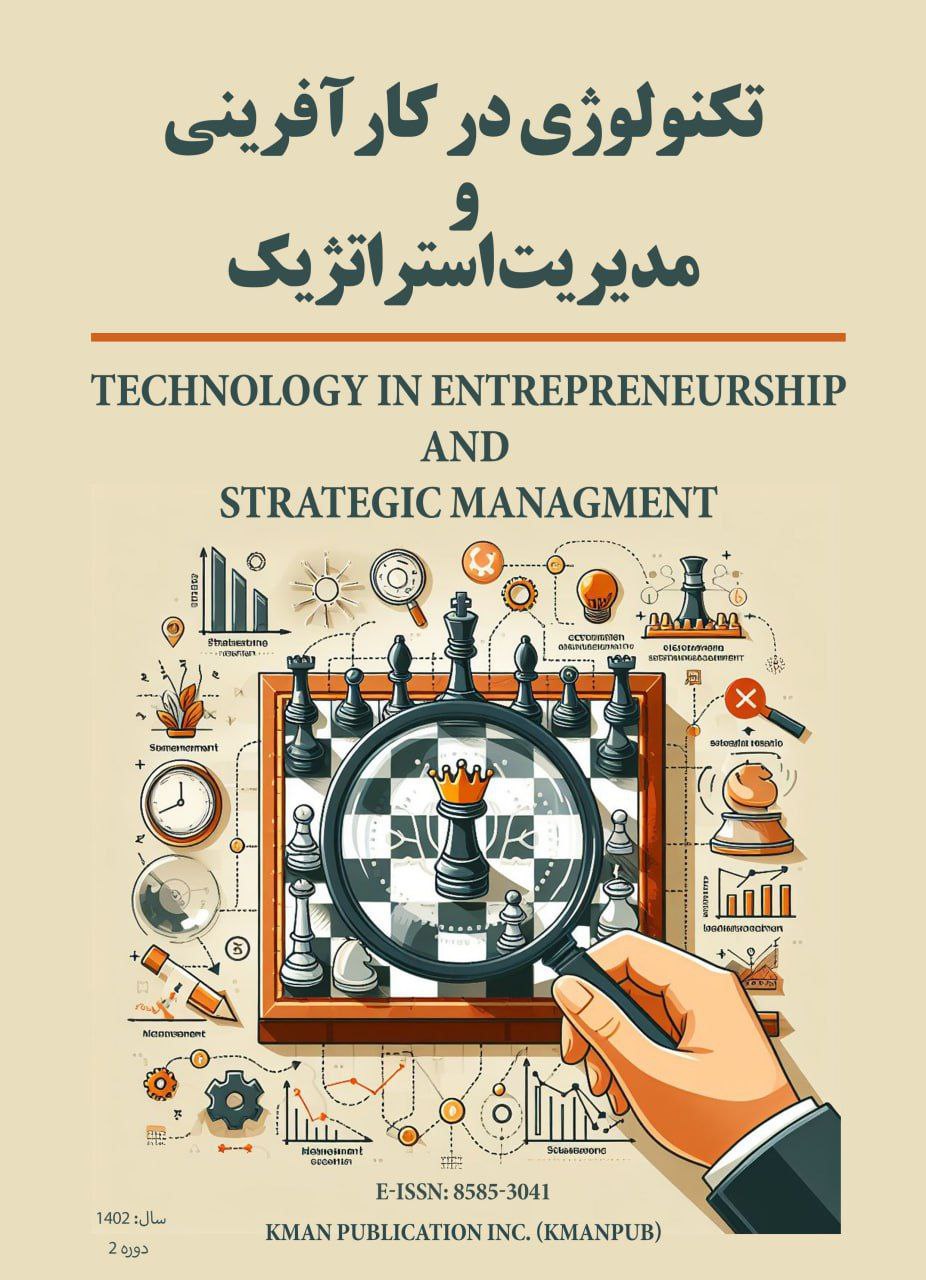Presenting an Educational Model for the Development of the Staff of the National Organization for Civil Registration
Keywords:
Development, Individual Development, Organizational Development, Staff, National Organization for Civil RegistrationAbstract
The present study aims to present an educational model for the development of the staff of the National Organization for Civil Registration. The research method was mixed (qualitative and quantitative). The data collection tool in the qualitative part was a semi-structured interview, and in the quantitative part, a researcher-made questionnaire on staff development was used. The reliability of the questionnaire was calculated through Cronbach's alpha. The results of these interviews were a set of initial themes that were gathered through the coding process, from which categories were extracted. Then, in the axial coding stage, the connections between these categories were determined. For analysis, structural equation modeling was used, and to determine the current situation, one-sample t-test was utilized. For comparing the current and desired situation, one-sample t-test was employed through SPSS24 software. For presenting the final research model, measurement modeling was used, and for fitting the model in the structural equation modeling technique, PLS3 software was used. The findings of the qualitative part of the research led to the identification of two dimensions (individual and organizational). The organizational development dimension consisted of 8 components, and the individual development dimension consisted of 3 components, which included 19 themes (sub-components) for assessing the mentioned components. The current situation of staff development in the National Organization for Civil Registration showed a gap and distance in the organizational development dimension, while there was no gap and distance in the individual development dimension between the current and desired situations. Based on the research results, the components and indicators were identified, and the final model was drawn. The developed model can serve as a guiding charter for the macro-level planning of managers and planners of the National Organization for Civil Registration.
Downloads
References
Abdollahi, B., Sadin, A. a., NavehebSrahim, a., & abassiyan, h. (2022). Designing a professional development model for
faculty at Farhangian University with a grounded theoretical approach and a mixed exploratory paradigm.
ieaajournal, 11(2), 41-83. https://doi.org/10.52547/meo.11.2.41
Balamurugan, R., & Zubar, H. A. (2019). An integrated approach to performance measurement, analysis, improvements
and knowledge management in healthcare sector. International Journal of Knowledge Management Studies, 10(1),
-99. https://www.inderscienceonline.com/doi/abs/10.1504/IJKMS.2019.097130
Hosseini Kkouhsari, S. J., Mashayekh, M. r., Salar, J., & Baqeri, S. M. (2021). Designing and Explaining the Model of
Human Capital Flourish to Achieve a Knowledge-Based Economy. Public Organizations Management, 9(4), 103-
https://doi.org/10.30473/ipom.2021.59392.4397
Jovari, B., & Mohammadi moghaddam, Y. (2021). Vigor and its implementation strategies in universities. The Journal
of New Thoughts on Education, 17(1), 229-252. https://doi.org/10.22051/jontoe.2021.26926.2723
Kanjanakan, P., Wang, P. Q., & Kim, P. B. (2023). The empowering, the empowered, and the empowerment disparity:
A multilevel analysis of the integrated model of employee empowerment. Tourism Management, 94, 104635.
https://doi.org/10.1016/j.tourman.2022.104635
Mohammad Hafez, K. (2022). The relationship between job enthusiasm and professional growth of teachers on
organizational growth in first-level secondary school teachers in Khanjin city. Journal of New Research Approaches
in Management and Accounting, 6(85), 597-608. https://www.magiran.com/paper/2456398
Mohebzadegan, Y., Pardakhtchi, M. H., Ghahramani, M., & Farasatkhah, M. (2023). Developing a Model for Faculty
Development Approach based on Grounded Theory. Quarterly Journal of Research and Planning in Higher
Education, 19(4), 1-25. https://journal.irphe.ac.ir/article_702824.html
https://journal.irphe.ac.ir/article_702824_2a0f223223b542a0bd996f6d9b0362af.pdf
Najarian, R., Hajinabi, K., & Nazarimanesh, L. (2022). The Relationship Between Human Resource Empowerment and
Organizational Productivity of Imam Hossein (AS) Shahrood Hospital. Journal of healthcare management, 2(13),
-15. https://doi.org/10.30495/jhm.2022.67880.11054
Oncioiu, I., Kandzija, V., Petrescu, A.-G., Panagoreţ, I., Petrescu, M., & Petrescu, M. (2022). Managing and measuring
performance in organizational development. Economic Research-Ekonomska Istraživanja, 35(1), 915-928.
https://doi.org/10.1080/1331677X.2021.1951317
Rasooly Kalamaki, F., Mahmoudi, G., & Yazdani Charati, J. (2020). Relationship between Organizational Culture and
Organizational Health in Employees of District 1 Iran Teaching Hospitals. muq-hygiene, 9(4), 256-264.
https://doi.org/10.52547/ArchHygSci.9.4.256
Safie, S. (2021). Designing & Validating the Model of Ethical Development Among Faculty Members & Instructors at
Farhangian University. ethicsjournal, 16(3), 89-96. http://ethicsjournal.ir/article-1-2400-en.html
Shabani Bahar, G. R., Ghareh, M. A., & Siavashi, M. (2020). “Designing Structural Model of Development Professional,
Organizational and Persona Faculty members of Physical Education and Sports Science“. Applied Research in Sport
Management, 8(4), 99-112. https://doi.org/10.30473/arsm.2020.6811
Tripathi, P. M., Srivastava, S., Singh, L. B., Kapoor, V., & Solanki, U. (2021). A JD-R perspective for enhancing
engagement through empowerment: A study on Indian hotel industry. Journal of Hospitality and Tourism
Management, 46, 12-25. https://doi.org/10.1016/j.jhtm.2020.11.007
Zeraati, M., Abolghasemi, M., Khorasani, A., & Kheirandish, M. (2020). Knowledge development of knowledge workers
based on knowledge management approach. Innovation Management in Defensive Organizations, 3(1), 147-172.
Downloads
Published
Issue
Section
License

This work is licensed under a Creative Commons Attribution-NonCommercial 4.0 International License.











